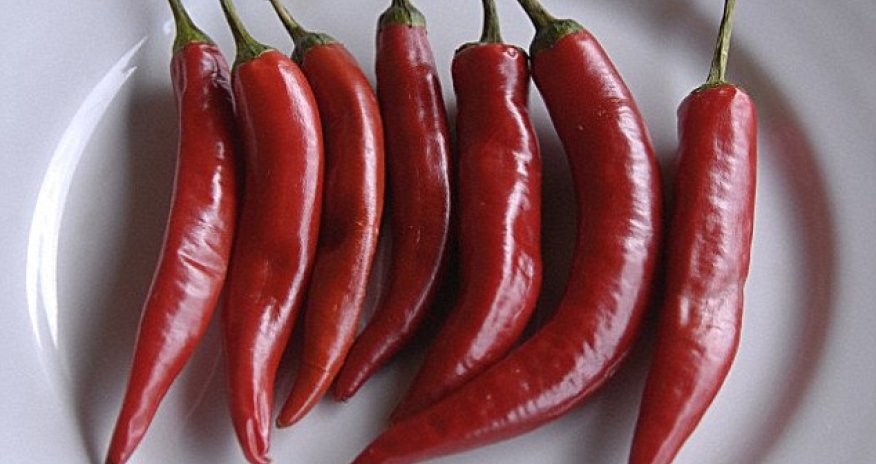Adding chilli to food really CAN help you lose weight

It's long been thought that chillies can help us lose weight.
Now, new research found the fiery food can help us feel full, stopping us from overeating and piling on the pounds.
The stomach stretches when it is full, activating nerves to tell the body it has had enough food.
However a high fat diet impairs important receptors in the stomach that signal fullness, Australian researchers found.
But eating chilli peppers can activate the stomach to stretch and release the 'full-feeling' signals, stopping a person from overeating, they said.
It has previously been found that capsaicin – the compound in chilli which gives it its heat – is able to stimulate a receptor called potential vanilloid 1 (TRPV1) channel protein.
This receptor triggers the process described above, where the stomach stretches and signal to the body it is full.
The new study's findings back up previous work which found this receptor can stop obesity associated with a high-fat diet.
Professor Amanda Page, of the University of Adelaide, who carried out the research, said: 'The stomach stretches when it is full, which activates nerves in the stomach to tell the body that it has had enough food.
'We found that this activation is regulated through hot chilli pepper or TRPV1 receptors.
'It is known from previous studies that capsaicin, found in hot chillies, reduces food intake in humans.'
Deleting the TRPV1 receptors dampens the response of the stomach nerves stretching – resulting in a delayed feeling of fullness and people eating more food, she added.
And eating a high-fat diet disrupts these receptors and leads to obesity, she said.
But the study found eating chilli may reduce food intake because it is able to stimulate stomach nerves to signal fullness, she concluded.
Dr Stephen Kentish, of the University of Adelaide's School of Medicine, says these findings could help the development of new therapies for obesity.
He said: 'It's exciting that we now know more about the TRPV1 receptor pathway and that the consumption of capsaicin may be able to prevent overeating through an action on nerves in the stomach.
'The next stage of research will involve investigation of the mechanisms behind TRPV1 receptor activation with the aim of developing a more palatable therapy.
'We will also do further work to determine why a high-fat diet de-sensitises TRPV1 receptors and investigate if we can reverse the damage,' he says.
The research was published in the journal PLOS ONE.
(dailymail.co.uk)
www.ann.az
Similar news
Similar news

Society
13:30
Azerbaijan President reviews locally produced waste collection vehicles at Baku Expo Center

Society
13:00
Azerbaijan registers over 21,000 criminal offenders in 2025, majority unemployed or uneducated


































 Photo
Photo 



 Video
Video 

